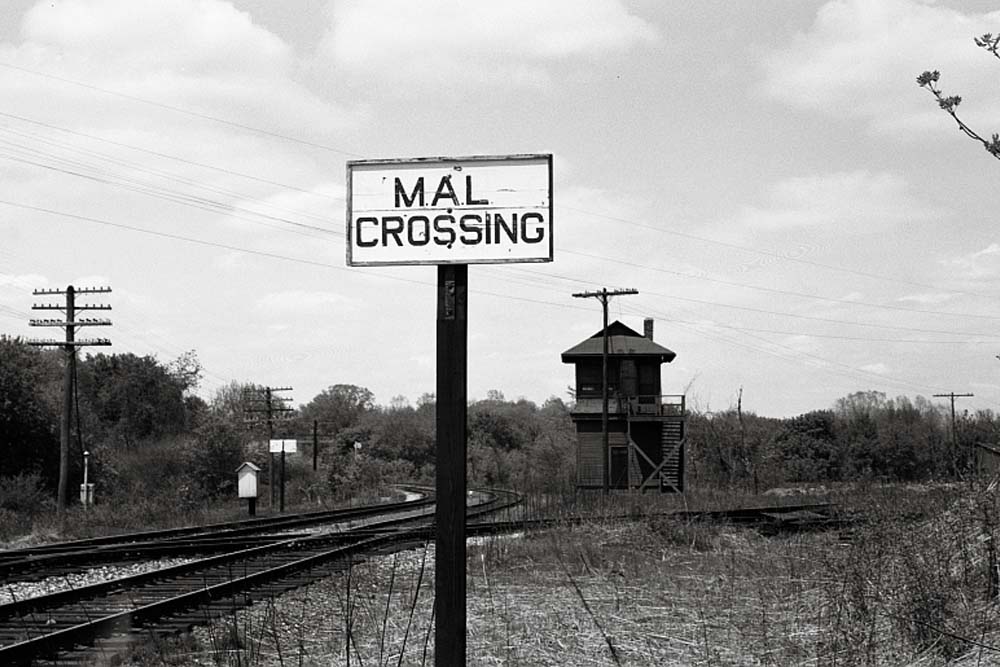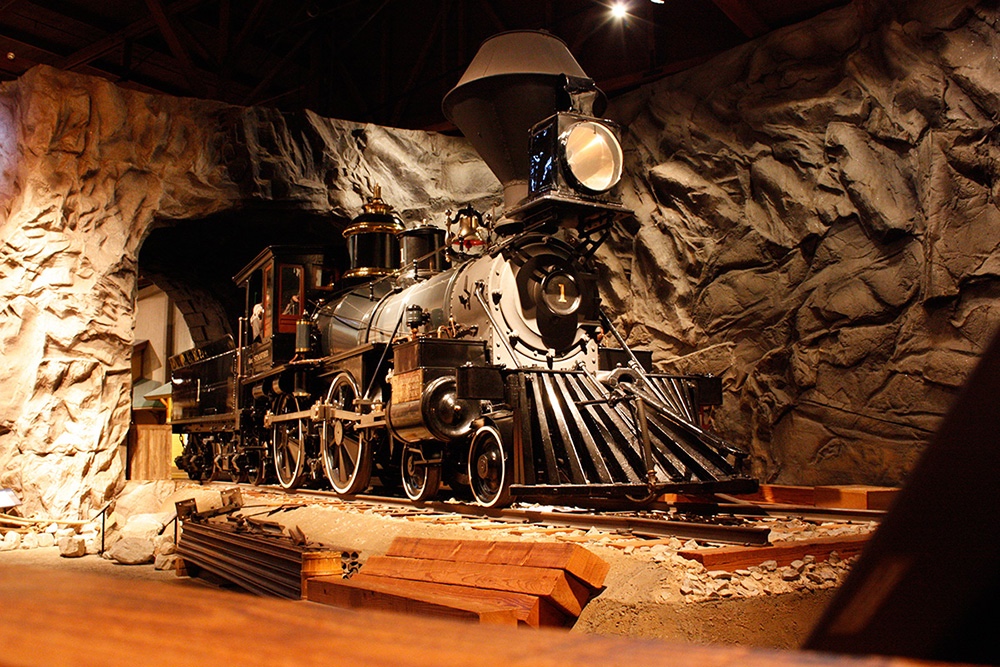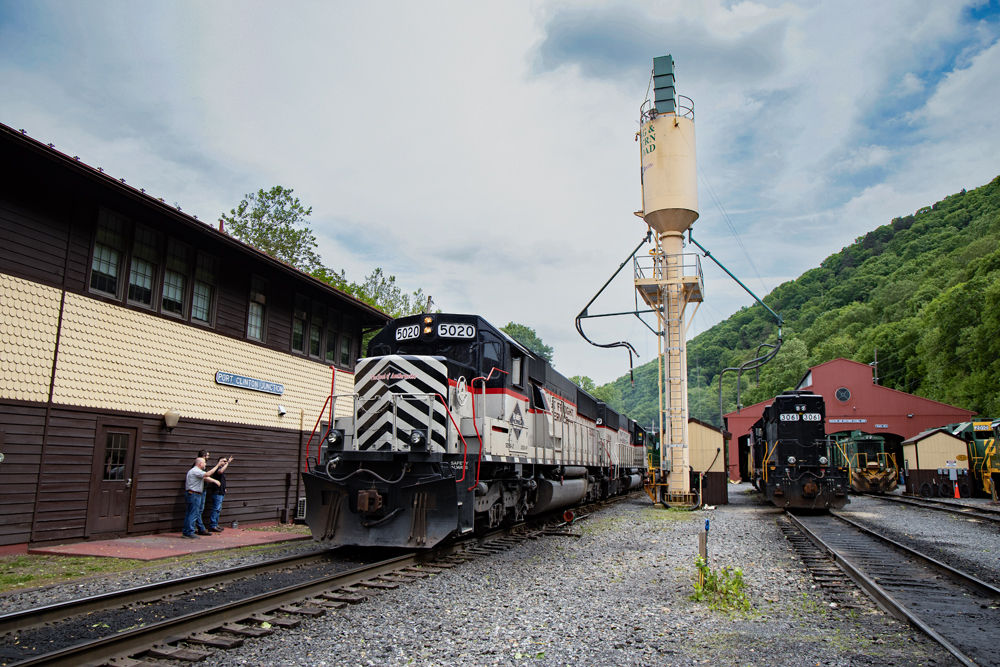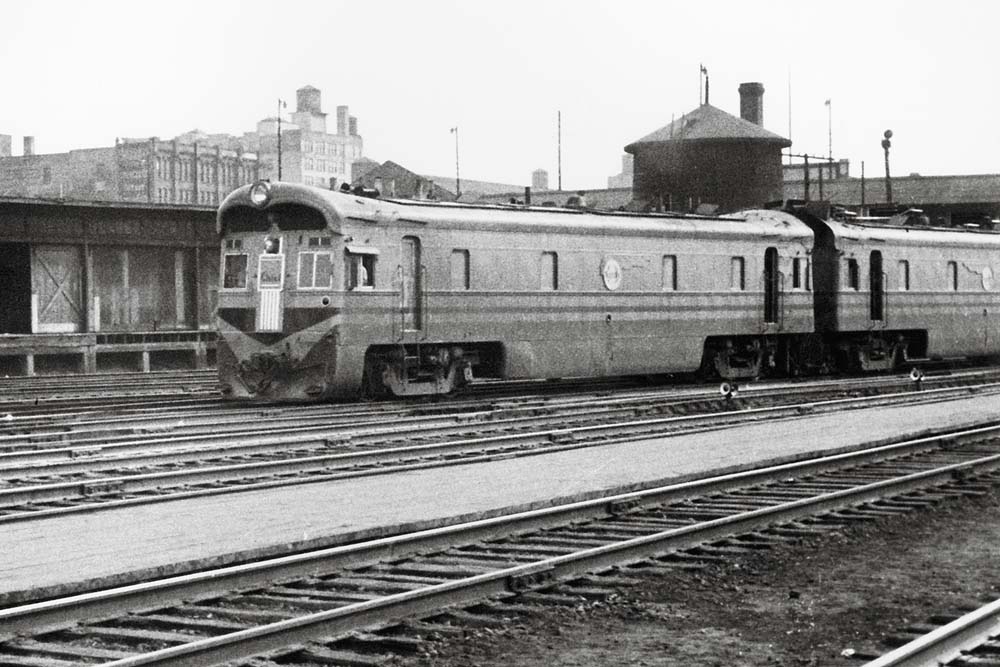Mind-blowing railroad words
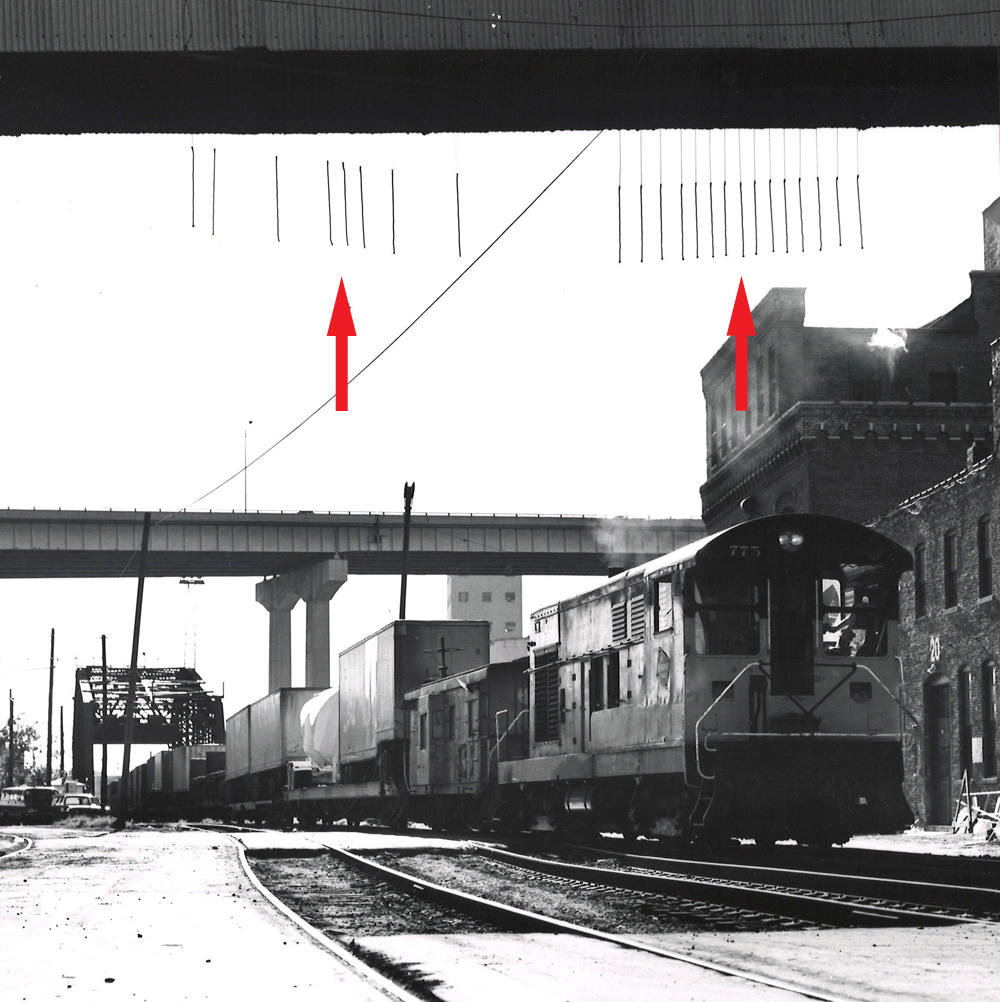
Depending on how you slice it, there are easily over one million words in the English language. Ours is a dynamic tongue, ever expanding and contracting to suit current societal needs. What influences our vocabulary is also dynamic. Prevailing social trends, events, and technology, to name a few, all influence what words we use. We are talking about five mind-blowing railroad words
The influence brought to bear by the railroads on all aspects of society over time, is well known. As we talk through a normal day, did you ever stop to think that some of the words or phrases we utter find their origin along the tracks? Or, even on the wrong side of the tracks, to turn a phrase?
You have probably spoken these five words or phrases not knowing their roots are attached to the railroading vernacular.
No. 1: All the bells and whistles
Being equipped with all the options and extras. Fully dressed or decorated.
The first thought is that this phrase is a means to describe a locomotive displaying plenty of optional equipment. While true, it’s possible the locomotive being described is a model or toy with all “the bells and whistles” included to make it look like a real engine. The possibility also exists that this phrase may find it origins in the ornate organs of early movie houses and circuses. Some of the fancier instruments came with, literally, bells and whistles not found on lesser models.
No. 2: Brownie points
An imaginary social currency earned for good deeds or kindnesses.
Brown stamps or brown points were a popular post-World War II marketing gimmick. You earned stamps with purchases and then redeemed them for household items. The phrase can also refer to the awards earned by Brownies, a younger rank of the Girl Scouts. However, for our railroad purposes, we turn to railroad superintendent George R. Brown of New York’s Fall Brook Railway. In 1886, Brown developed a system of merits and demerits for his railroad’s employees. Brown’s system gained wide recognition through railroad trade publications. Many of the largest U.S. railroads adopted the Brown system, adding to its notoriety. Soon railroad employees began referring colloquially to the merits and demerits as “brownie points.” The term then found its way into the mainstream of our language.
No. 3: The real McCoy
The real or original design. Not an imitation.
The railroad etymology of this phrase takes us to Ypsilanti, Mich., in the early 1870s. Elijah McCoy, an African American, was able to find work as a fireman and oiler for the Michigan Central Railroad. In his off hours, McCoy could be found in his home workshop tinkering with ideas to better the steam locomotive. Among his noteworthy inventions was an automatic lubricator, recognized by U.S. Patent 129,843. While others offered similar devices, McCoy’s was found to be superior, hence the saying: “I want the real McCoy,” meaning no substitutions accepted.
It is also thought that the phrase may be a corruption of “the real MacKay,” part of a line from the 1856 Scottish poem Deil’s Hallowe’en. “A drappie o’ the real MacKay” or “a drop of the real MacKay,” referring to that favored Scottish libation — whiskey.
No. 4: Featherbedding
The practice of hiring more workers than are needed just to give someone a job or implementing complex work procedures designed to take more time and/or unnecessarily require additional workers.
A feather-stuffed mattress is incredibly soft and comfortable. Aboard sleeping cars, these featherbeds provided a wonderful night of slumber as the train rolled along. The easy nature or lack of actual work required to complete some railroad jobs also became known as featherbedding. As technology advanced, eliminating the need for a railroad position, labor unions would negotiate that position back into the contract, saving what had become an unnecessary job. In some cases, work rules were negotiated requiring complex procedures, advanced levels of training or high seniority, so that only a few men could hold a position, thus guaranteeing them a job. This is another example of featherbedding.
No. 5: Telltale signs
An outward sign, a warning of something that could be bad if not noticed.
Harken to the days before air brakes when brakemen regularly walked along the top of a moving freight train. A tunnel, a low bridge or the over-hanging roof along a loading dock all posed hazards to the brakeman. A device called a telltale was placed over the tracks to warn of the upcoming hazards. The tell-tale was a series of ropes hanging vertically spaced out to span the width of the track. As the train passed, if you were on top of the car and contacted one of these ropes — duck! There’s low clearance ahead. In other words: It was a telltale sign that he was about to have a bad day.
That’s our railroad vocabulary lesson for today. Don’t get derailed. Keep looking for those words and phrases that arrived by train. There’s many more than five mind-blowing railroad words.






